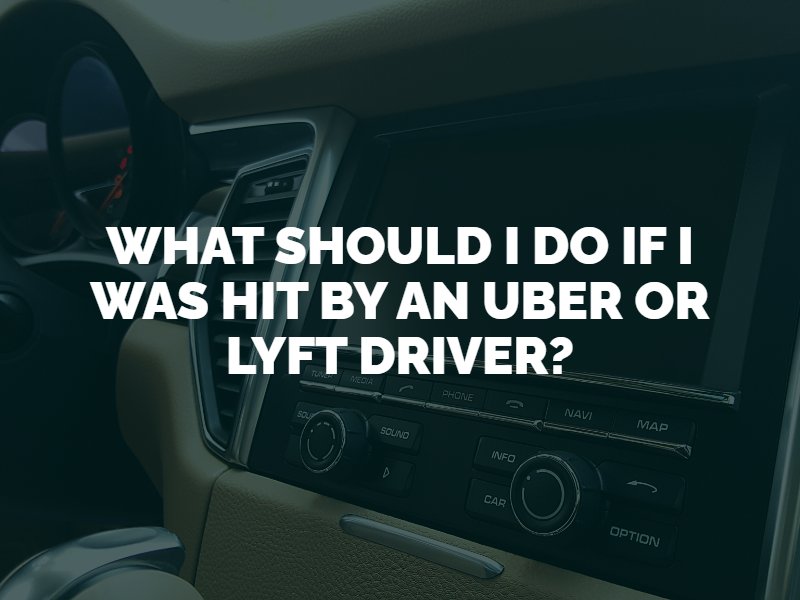Car accidents involving rideshare vehicles are more complicated than standard motor vehicle collisions. It can be difficult to determine who is financially responsible for the damage caused by the Uber or Lyft accident due to legal issues such as whether the rideshare company owes you compensation. If an Uber or Lyft driver hit your car in Denver, knowing what steps to take next can help you protect your rights.

Your priority after any car accident should always be your safety. Check yourself for signs of injury, such as bleeding, swelling or pain. Then, check your passengers and the Uber or Lyft driver for injuries. If you or anyone is injured, call 911 to request an ambulance right away. Even if you do not immediately notice signs of an injury, seek prompt medical attention to find injuries that may have hidden or delayed symptoms. Also, contact a car accident attorney in Denver if you have been in an accident.
While you are still at the scene of the crash, call local law enforcement to report the collision. Colorado law requires almost all car accidents to be reported: any that involve injuries, property damage or death. When the police arrive, be sure to give them your version of events for the record. Be honest when answering questions but do not admit fault for the rideshare accident. There may be other factors involved that you are unaware of, such as driver distraction in Denver.
While you wait for the police to arrive, exchange information with the Uber or Lyft driver. Write down his or her name, the ridesharing app that he or she was logged into at the time of the crash, and a description of his or her vehicle. Include the vehicle’s license plate numbers and vehicle identification number (VIN). Gather evidence from the scene, as well, such as photographs and eyewitness information.
Start the insurance claims process by contacting your own car insurance provider as soon as possible to report the car accident. You may have personal injury protection (PIP) insurance that can pay for your medical bills and other losses. Again, do not admit fault for the collision. Do not give the insurance company a recorded statement or sign a release of liability waiver until you have spoken to an attorney.
Reach out to the respective ridesharing company to notify them that their driver was involved in an accident with you. Do not assume that the Uber or Lyft driver reported the crash, even if he or she is legally obligated to do so. Describe the crash but refrain from speaking about your injuries or giving too many details.
Uber and Lyft both carry insurance policies that offer up to $1 million in coverage to third parties – including rideshare passengers and individuals outside of the vehicle – if their driver is at fault for an accident. This coverage can pay for your medical bills and property repairs. If the rideshare company is not financially responsible (e.g., the driver was logged off of the app at the time), you may need to file a claim with the Uber or Lyft driver’s personal insurance policy instead.
If you or a loved one suffered serious injuries or complications such as a liability dispute arise in your attempt to recover financial compensation for an Uber or Lyft collision, contact a ridesharing accident attorney in Denver. You may need the attorneys of Fang Law Firm for assistance to negotiate with Uber or Lyft and obtain fair compensation for your crash-related damages. An attorney can go up against a ridesharing company on your behalf to ensure you are treated fairly.